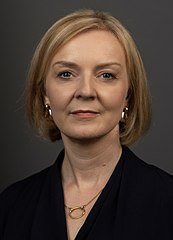Family matters
There are some writers whose importance does not diminish with their demise. Take, for example, the ancient Athenian playwright Aristophanes; his plays are still being staged nearly two and half millennia after his death; then there’s that genius in understanding human emotions and the human condition, William Shakespeare.
 To these giants of literature, your ‘umble scribe would add the name of George Orwell. Even though he died in 1950, his works still seem startlingly relevant to life in the 21st century and its politics in particular. The major annual prize for political writing in the English Empire (which some still call the United Kingdom. Ed.) is named after him.
To these giants of literature, your ‘umble scribe would add the name of George Orwell. Even though he died in 1950, his works still seem startlingly relevant to life in the 21st century and its politics in particular. The major annual prize for political writing in the English Empire (which some still call the United Kingdom. Ed.) is named after him.
Nineteen Eighty-Four (in words, not numerals. Ed.), which was written in 1948 and published in 1949, was intended as a warning against authoritarianism and oppression. However, successive twenty-first century governments seem to have used it as a manual for the implementation of mass surveillance of the population and the removal of their right to privacy, particularly as regards the use of information technology (via e.g. the Regulation of Investigatory Powers Act 2000); and all in the name of so-called security.
What has been exercising your correspondent this morning is a particular passage from The Lion and the Unicorn: Socialism and the English Genius. This was an essay written in 1941 during World War 2 relating to the state of the English, as opposed to the British. In particular, it highlights the outdated English class system as a major impediment in the mid-20th century, as exemplified below.
England is not the jewelled isle of Shakespeare’s much-quoted message, nor is it the inferno depicted by Dr Goebbels. More than either it resembles a family, a rather stuffy Victorian family, with not many black sheep in it but with all its cupboards bursting with skeletons. It has rich relations who have to be kow-towed to and poor relations who are horribly sat upon, and there is a deep conspiracy of silence about the source of the family income. It is a family in which the young are generally thwarted and most of the power is in the hands of irresponsible uncles and bedridden aunts. Still, it is a family. It has its private language and its common memories, and at the approach of an enemy it closes its ranks. A family with the wrong members in control – that, perhaps, is as near as one can come to describing England in a phrase.
Looking at the cupboards bursting with skeletons, one only has to look at the colonial oppressors and crooks that our Victorian forebears sought to elevate to figures of admiration, such as Robert ‘Lord Vulture’ Clive, who used his position in the East India Comp;any for personal enrichment and the likes of Waterloo hero Thomas Picton, formerly a sadistic and cruel governor of Trinidad. Both Clive and Picton have featured in the recent statue wars where the right wing, including government ministers, sought to deny the brutality of empire and its legacy. Sorry, but introducing the system of common law and the game of cricket are not adequate compensation for centuries of plunder, expropriation, conquest, repression and genocide.
Looking at the deep conspiracy of silence about the source of the family income, there has yet to be any official acknowledgement that the family income from the late 16th century onwards was based upon piracy and then increasingly upon slavery, for which some former British Caribbean colonies are clamouring increasingly for reparations.
 Finally, let’s come to that family with the wrong members in control. They don’t come more wrong than the current occupant of Number 10 Downing Street, one Elizabeth Mary Truss.
Finally, let’s come to that family with the wrong members in control. They don’t come more wrong than the current occupant of Number 10 Downing Street, one Elizabeth Mary Truss.
Truss is clearly an admirer – and blatant imitator – of her Tory predecessor Margaret Thatcher, who did so much to destroy the British economy and society in the 1980s. However, what really grates with many people is the manner in which Truss was elevated to the premiership, i.e. elected to the leadership of her party by its 160,000 strong membership which is mainly elderly, white, male and racist (occasionally referred to as a ‘selectorate‘. Ed.), and thus hardly representative of the country.
If England truly is akin to a family, it is one that is deeply dysfunctional.